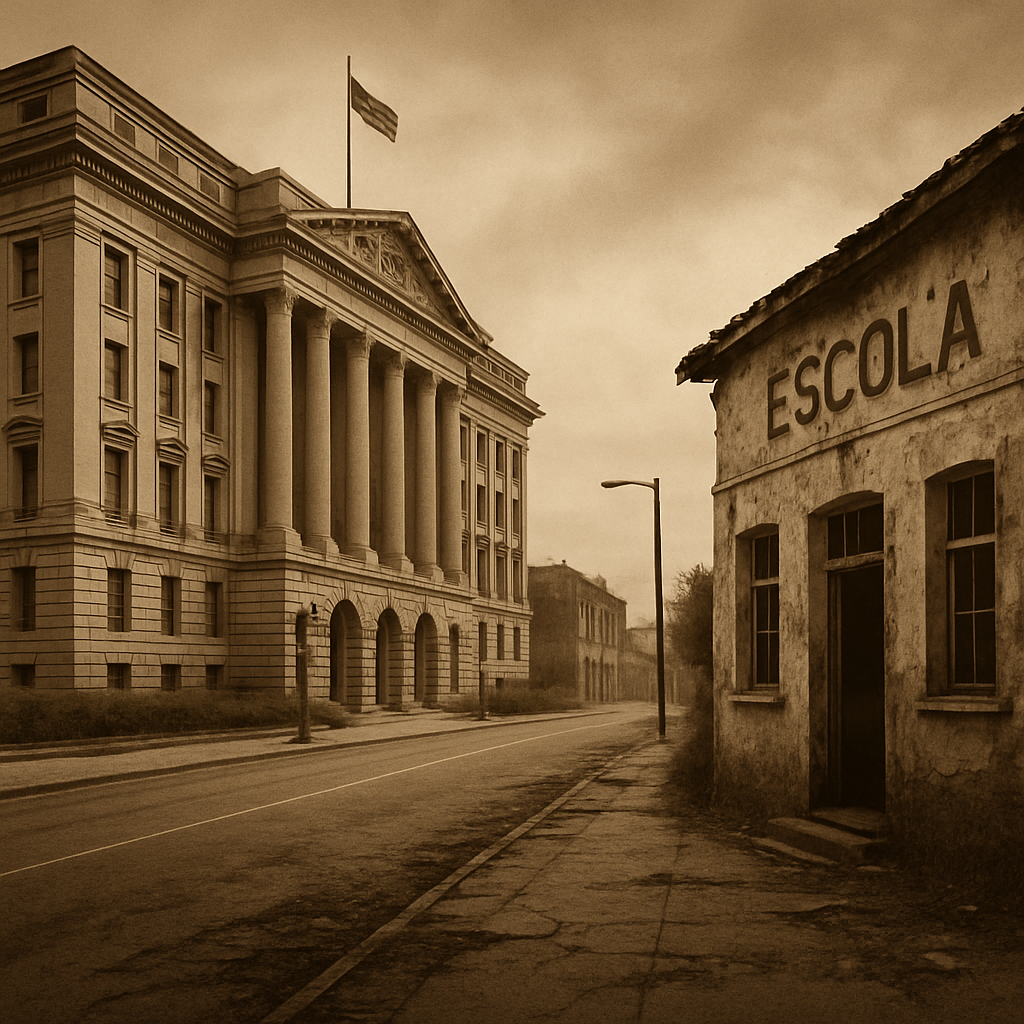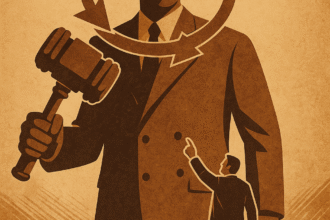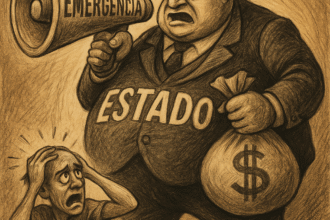While the tax burden grows, the return to the population is decreasing. The reason? An obese, expensive State protected from any accountability.
In this post, we will analyze why the administrative reform never advances in Brazil, who benefits from this and how society pays — with poor services, high taxes and an armored bureaucratic elite.
👉 Read also: Perpetual Emergency: How the State Uses Crises to Expand
Public service or privileged castes?
Brazil has:
- One of the higher spending on civil servants from Latin America.
- One of the worst relationships between public spending and quality of service.
- And one legal system that protects bad employees and punishes meritocracy.
About that:
- Salaries above the private sector average.
- Almost unconditional stability.
- Automatic progressions, bonuses and trinkets.
Who really resists reform?
The speeches are beautiful:
“We need to modernize the State.”
“It is important to professionalize the public sector.”
But in practice, every attempt at reform is:
- Shelved by Congress.
- Torn apart by unions.
- Ignored by those who live off the machine — and not by the population.
Why?
Because an organized elite defends its own privileges with public money and political influence.
The farce of public efficiency
How many times have you heard that “the State needs more resources to function well”?
But the problem is not money. It's structure.
Brazil spends like a Nordic country — and delivers like a country in collapse.
The reason?
- Lack of goals.
- Lack of real performance evaluation.
- Awards for time, not results.
What they call “stability” has become synonymous with immunity to inefficiency.
Who pays this bill?
You, ordinary citizen:
- Who faces a queue at the hospital.
- Who waits months for an assessment at the INSS.
- Who sees their children in schools with absent teachers and precarious structures.
- Who works in the private sector without guarantees, bearing the bill for those who live with security.
The cost of maintaining an inefficient machine is invisible in everyday life — but lethal for the country’s future.
Without reform, there is no possible fiscal solution
There is no point in discussing the spending cap, framework or primary balance if:
- THE fixed cost of the State is untouchable.
- THE budget is rigidly committed to payroll, pensions and inefficient structures.
- High-ranking civil servants live shielded from the national economic reality.
Without administrative reform, everything else is fiscal makeup.
Conclusion: The reform that never comes is the privilege that never falls
While we talk about “social injustice”, little is said about tax injustice of sustaining a system that rewards stability, not results.
Reforming public administration means returning the State to its function: serve society — not serve oneself by it.
📩 Do you want to understand why the Brazilian public sector consumes so much and delivers so little?
Subscribe to the Economic Radar newsletter and receive critical and direct analysis in your email.





